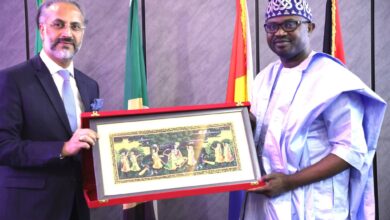Nigeria Records Decrease In Child Marriages, Mortality -Survey

A recent survey carried out by the National Bureau of Statistics (NBS) in collaboration with the United Nations Children’s Fund (UNICEF) has revealed that Nigeria made significant progress in reducing child mortality and child marriages.
This was contained in Nigeria’s 2021 Multiple Indicator Cluster Survey (MICS) and National Immunization Coverage Survey (NICS) report, officially launched by Vice-President, Prof. Yemi Osinbajo on Tuesday, August 16, 2022.
According to a joint statement signed by the Directors, Communication & Public Relations of NBS and UNICEF, the two surveys were aimed at providing reliable nationwide and internationally comparable data to monitor the situation of children and women in the country.
They explained that, the MICS was a household survey developed by UNICEF to assist countries in filling data gaps for monitoring human development indicators in general and the situation of children and women in particular.
“It has evolved over the years to respond to changing data needs, expanding from 28 indicators in the first round in 1999 to 200 in its current sixth”, the statement said.
They also explained that the National Bureau of Statistics (NBS) implemented MICS which provides data on child mortality, health, nutrition, education, child and social protection, women’s health care and empowerment, water, sanitation and hygiene, while NICS assesses vaccination coverage provided through the health systems.
Going further, the duo noted that Indicators produced for the first time included social transfer, household energy use, child functioning and foundational learning skills. The survey measures the government’s progress towards national commitments and the Sustainable Development Goals.
Additionally, the MICS results revealed that Nigeria had made progress in some sectors. Child mortality decreased from 1 in 8 children dying before their fifth birthday (MICS 2016) to 1 in 10 children (MICS 2021).
It also revealed that there had been significant progress in exclusive breastfeeding and birth registration rates – the exclusive breastfeeding rate increased from 24% to 34%, while nearly 60% of Nigerian children were now registered at birth with civil authorities, compared to 47% in 2016. In addition, child marriage (women married before age 18) reduced from 44% to 30% since 2016.
Commending the surveys, Statistician-General of the Federation/CEO National Bureau of Statistics, Prince Adeyemi Adeniran said: “The 2021 Nigeria MICS-NICS report provides evidence-based data for all key stakeholders to prioritise quality services for children and women with higher efficiency and effectiveness.
“As we build back better from the impact of the COVID-19 pandemic, the MICS-NICS survey provides evidence to shape interventions and focus resources in a way that helps children and their families reach their full potential,” Statistician-General of the Federation/CEO National Bureau of Statistics Prince Adeyemi Adeniran.
“Using the data to monitor progress towards our collective commitments to children and families, and inform future action is critical if we must leave no one behind.”
Similarly, UNICEF Representative in Nigeria, Peter Hawkins stated that information collated in the surveys would help the country in effective budgeting and decision making.
“The information collated will inform policies aimed at social inclusion of the most vulnerable population, help identify disparities, and allow for international comparability.
“Data is critical for effective budgeting and decision making – and the data from these surveys together paint a picture of the situation for children and families in Nigeria”, he said.
Hawkins, however, noted that the country needed to make more effort in ensuring the well-being of children: “The picture is a mixed one. While there has been some good progress, and we should celebrate that – we still have a long way to go to towards ensuring the well-being of children in Nigeria.
“The findings of this survey will help guide the federal and state governments as they plan their budgets – providing evidence for where more support and funds need to be wisely allocated and utilized”, he said.






